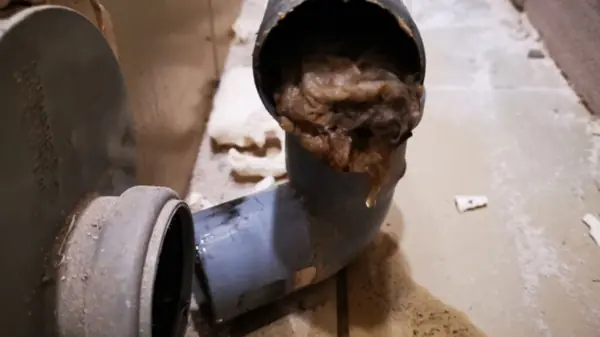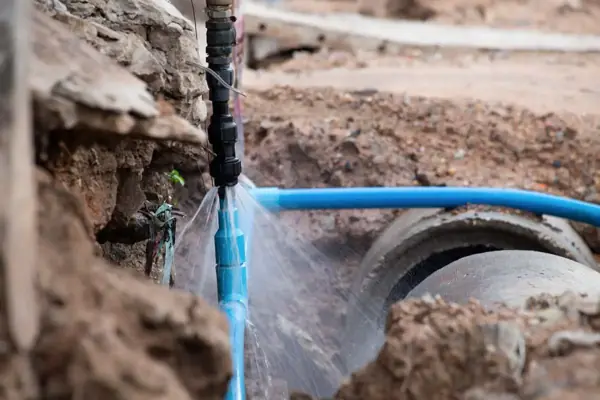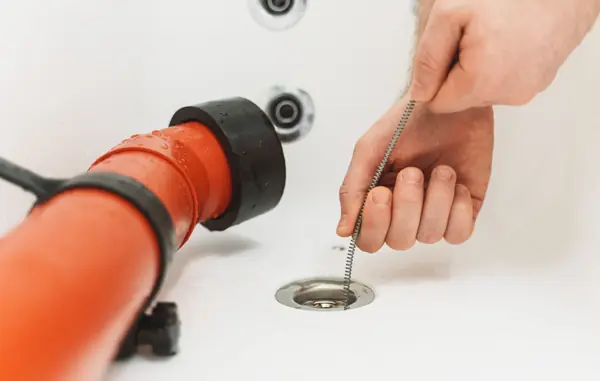Wastewater might not be the most exciting topic, but it’s something we all rely on daily. What happens after you flush or drain the sink? That’s where drain field technology quietly does the heavy lifting, keeping our environment clean without most people even realizing it.
Traditional septic systems have been around for ages, but newer, more advanced drain field designs are making wastewater treatment more efficient, eco-friendly, and low-maintenance. These systems use natural filtration and smart engineering to safely return water to the environment—no noisy machines or chemical-heavy treatments required.
Whether you’re a homeowner with a septic system or just someone who cares about sustainable solutions, this technology is changing the game in ways that affect us all.
How is drain field technology improving wastewater treatment efficiency?
Drain field technology significantly improves wastewater treatment efficiency by enhancing filtration and making septic systems more sustainable. Here’s how these innovations contribute to better performance:
- Aerobic Treatment Units (ATUs) use oxygen to speed up the breakdown of organic waste. This process helps treat wastewater more efficiently, reducing the load on the drain field and minimizing the potential for contamination of surrounding soil or water sources.
- Improved Permeable Materials: Modern drain fields use more permeable materials, allowing treated wastewater to pass through the soil more effectively. This increases the field’s capacity to filter contaminants and enhances the treatment process, ensuring cleaner effluent is returned to the environment.
- Nutrient Removal: Advanced drain fields are designed to remove harmful nutrients, such as nitrogen and phosphorus, which can pollute nearby water sources. New materials and treatment systems help reduce the risk of nutrient overload, which can lead to eutrophication in water bodies.
- Reduced Maintenance Needs: With better design and advanced treatment systems, drain fields require less frequent maintenance and pumping. Improved efficiency helps extend the system’s lifespan and reduce the frequency of costly repairs or replacements.
- Environmental Protection: Modern drain field technologies minimize environmental impact by enhancing wastewater treatment efficiency. They ensure that wastewater is treated safely before being reintroduced to the environment.
These improvements ensure that drain field systems are more effective, sustainable, and environmentally friendly, leading to better overall wastewater management.
What are the environmental benefits of modern drain field systems?
Modern drain field systems offer significant environmental benefits by improving wastewater treatment and minimizing environmental impact. Here are some key advantages:
- Improved Groundwater Protection: Modern drain field systems are designed to filter and treat wastewater more efficiently, reducing the risk of contaminants such as bacteria, viruses, and chemicals from reaching the groundwater. This protects drinking water supplies and preserves the quality of local aquifers.
- Enhanced Nutrient Removal: Advanced drain fields can remove excess nutrients, such as nitrogen and phosphorus, which can otherwise lead to harmful algal blooms, eutrophication, and water quality degradation. This reduces the potential for water pollution in nearby rivers, lakes, and streams.
- Reduced Soil Contamination: Modern systems’ improved filtration capabilities prevent wastewater from leaching harmful substances into the soil. This reduces the risk of soil contamination and helps maintain healthy ecosystems in the surrounding areas.
- Lower Carbon Footprint: Many modern systems incorporate energy-efficient technologies, such as aerobic treatment units that utilize less energy than traditional methods. By reducing energy consumption, these systems contribute to lower carbon emissions and more sustainable wastewater management.
- Minimized Odor and Waste Accumulation: Modern drain fields help reduce odors and waste accumulation by more effectively treating and better-dispersing water, creating a cleaner, healthier environment for homeowners and surrounding ecosystems.
Modern drain field systems play a crucial role in sustainable wastewater management by improving wastewater treatment efficiency and reducing environmental risks.
How does advanced drain field design help prevent groundwater contamination?
Advanced drain field designs are crucial in preventing groundwater contamination by improving wastewater treatment and filtration processes. Here’s how they help protect groundwater:
- Efficient Filtration: Modern drain fields use highly permeable materials, such as gravel or specialized filtration media, which allow treated wastewater to pass through more efficiently. This increases the system’s ability to filter out contaminants before reaching groundwater.
- Aerobic Treatment Systems: Many advanced drain field systems incorporate aerobic treatment units, which use oxygen to break down organic matter thoroughly. This process reduces the concentration of harmful bacteria, viruses, and organic compounds in wastewater, preventing them from seeping into the ground.
- Enhanced Nutrient Removal: Advanced drain fields are designed to remove excess nutrients like nitrogen and phosphorus that can cause contamination in groundwater. These nutrients can promote algae growth in water bodies and lead to harmful environmental effects. Modern systems filter out these elements more effectively, ensuring cleaner effluent is released.
- Protective Layering: Some drain fields incorporate multiple layers of treatment materials that trap harmful substances before the water reaches the soil or underlying aquifers. These layers provide added protection, ensuring that only treated water is reintroduced to the environment.
- Reduced Wastewater Load: Advanced systems improve the treatment process and reduce the volume of wastewater that reaches the ground, lowering the chances of oversaturation or leaching into the water table.
These innovations ensure that wastewater is treated effectively, reducing the risk of harmful substances reaching the groundwater and preserving the quality of local water sources.
What role do drain fields play in sustainable wastewater management?
Drain fields are critical to sustainable wastewater management, ensuring that wastewater is treated effectively while minimizing environmental impact. Here’s how drain fields contribute to sustainability:
- Natural Filtration: Drain fields utilize the soil’s natural filtration properties to treat wastewater. As the water passes through the soil, contaminants like bacteria, viruses, and organic matter are filtered out, ensuring that only clean water is released back into the environment.
- Efficient Nutrient Removal: Modern drain fields are designed to remove excess nutrients like nitrogen and phosphorus. When left untreated, these nutrients can pollute water sources and cause harmful algal blooms. By removing them, drain fields help protect ecosystems and prevent water quality degradation.
- Reduced Environmental Impact: Properly designed drain fields reduce the need for energy-intensive chemical treatments or excessive pumping, making them an eco-friendly solution for wastewater management. They also help minimize odors and the buildup of waste materials that could harm the surrounding environment.
- Sustainable Water Recycling: Drain fields contribute to the natural water cycle by treating wastewater and allowing it to safely infiltrate the ground. This process helps recharge local groundwater supplies, promoting water conservation and reducing the pressure on municipal water systems.
- Long-Term Cost-Effectiveness: Well-maintained drain fields require minimal ongoing maintenance, offering long-term savings for homeowners and communities while maintaining environmental balance. This reduces the need for expensive infrastructure upgrades and helps keep wastewater management systems affordable.
In these ways, drain fields provide a sustainable, low-impact solution for managing wastewater while protecting water quality and reducing environmental harm.
Discover How Drain Field Technology is Revolutionizing Wastewater Management Today!
At Hi-Desert Plumbing, we are at the forefront of sustainable wastewater solutions. Advanced drain field technology transforms how we manage wastewater, providing cleaner, more efficient systems that reduce environmental impact and protect our water sources.
With improved filtration, better nutrient removal, and a lower carbon footprint, these systems are setting new standards in wastewater management. Contact Hi-Desert Plumbing today to learn how our innovative drain field technology can benefit you and the environment!




